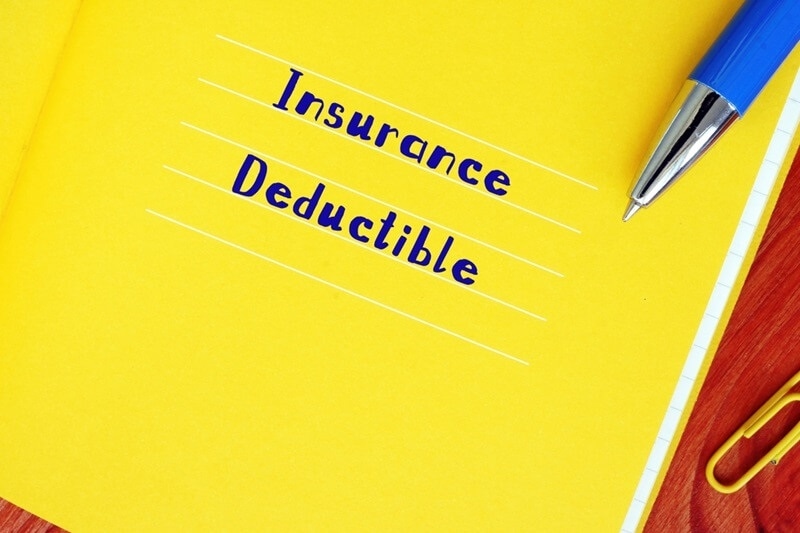
When it comes to making sense of your insurance policy—auto, health, home, or travel—one of the terms you'll commonly hear is deductible. So, what is deductible in insurance, and why would you care as a policyholder? Understanding the insurance deductible meaning, deductible vs premium, and how to make a smart deductible selection can save you money and keep you from getting a nasty surprise when you make a claim.
Simply put, a deductible is the sum you commit to paying yourself before your insurer begins to pay for the rest. It is one of the most important items in an insurance policy, and has a direct impact on premiums and your personal and financial responsibility for the claim.
Defined, an insurance deductible is as follows: it is your portion of the bill when something happens before the insurer pays the rest of the bill. Deductibles apply to a wide range of insurance—auto, health, homeowners, renters, and even pet insurance.
Here's how it works:
The deductible is really a cost-sharing operation that helps keep insurance costs low. It also prevents people from making small and insignificant claims.
Why We Need Deductibles:

Not all deductibles are alike in structure. Here are the common types you will find:
This is the typical deductible - it is set, and you have a deductible amount like $250, $500 or $1,000.
Commonly found in homeowners' insurance for natural disasters (hurricane, earthquake), where the deductible is a percentage of the insured value of your home. For example, if you have a $300,000 home, a 2% deductible will be a $6,000 deductible.
Most often found in health insurance, the consumer contributes until a certain dollar amount is reached during the year, then the insurance will pay for covered medical care after that.
This is applied every time you put a claim in, commonly used in auto and property claims.
Some insurers give you an incentive for safe driving or claim-free years by reducing your deductible over time.
One of the most frequently asked questions is deductible vs premium—and more significantly, how one impacts the other.
The Rule of Thumb:
For example:
Over a year, that’s $240 in savings if you choose the higher deductible—but you’ll need to be financially ready to pay more out of pocket in the event of a claim.
Your automobile insurance deductible is $1,000. You have an accident resulting in $5,000 worth of damage. You pay $1,000, and your insurance pays the other $4,000.
Your health insurance has a $2,500 deductible per year. You have broken your arm, and the hospital bill is $3,200. You pay the first $2,500, and insurance pays the next $700 (and the additional amount of your subsequent expenses for the rest of the year).
Your house is damaged to the tune of $10,000 during a storm, and there's a $2,000 deductible. You pay $2,000, while your insurer pays $8,000.
Deductible selection can have a big impact on your pocketbook and insurance premiums. Here are some tips to make your deductible selection a smart one:
Can you easily cover the deductible amount if you had to file a claim? If your emergency fund is only $1,500, it may not be wise to have a $2,000 deductible.
If you hardly make claims, a high deductible could save you money on premiums over time.
If you are considering an older car or a low-value property, you can select a higher deductible and save more on premiums. The amount saved on premiums would likely be less than the cost of repair or replacement.
If your property is located in a high traffic accident area, a disaster prone area, or if you travel frequently; you, may want to select a lower deductible just for the sake of security.
Compare premium savings for increased deductibles with the potential out-of-pocket cost in a claim situation.
Higher Deductible
Lower Deductible
Not always the case—sometimes your insurer pays first, then files for reimbursement with the at-fault party's insurance company.
Incorrect—deductible and premium are distinct.
Some are per event or claim.
At times, your deductible might determine if you even make a claim. When the repair cost is around your deductible, you might not bother—filing could cost you higher premiums down the line.
For instance:
Here, you might choose to cover the expense yourself to prevent a rate hike.
Knowing what you can deduct on insurance is so you can make informed financial decisions about your coverage. Your deductible directly influences the price of your premiums, the amount you keep for your out-of-pocket cost, and the way you make claims.
After reviewing the definition of insurance deductible, premium vs deductible comparison, and how to make a wise decision on deductible insurance, you now have a good balance between lower premiums and manageable risk in case of emergencies.
A deductible is not an inherently complicated insurance term—it's just an essential layer in your financial safety net. Having the correct deductible amount can save you hundreds each year in premiums without leaving you grasping for money when you make a claim. When purchasing auto, home, or health insurance, take time to crunch the numbers, assess your risk level, and make an informed decision.
This content was created by AI